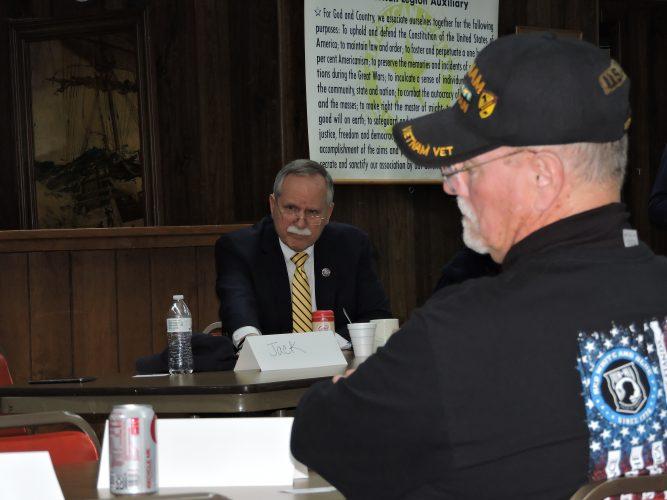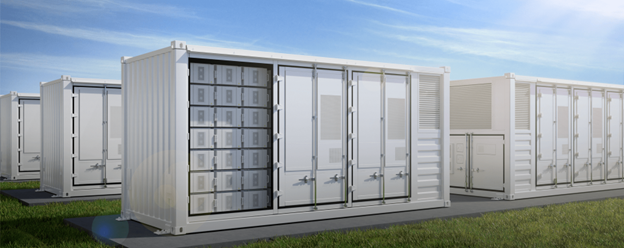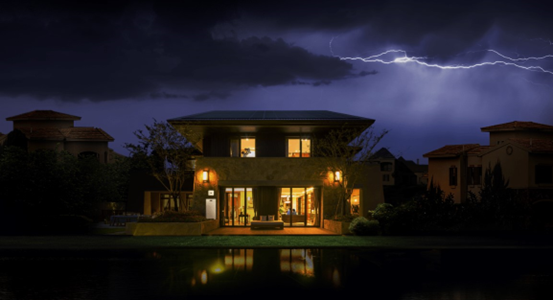Steven Allen AdamsGETTING RESULTS — U.S. Rep. David McKinley was in Charleston this week learning about 2022 priorities for state lawmakers and elected leaders.
CHARLESTON — Even with a looming primary election that could decide who represents the northern half of the state in the U.S. House of Representatives, 1st District Congressman David McKinley still has work to do with West Virginia leaders to move the state forward.
McKinley, now beginning his 11th year on Capitol Hill, will have to challenge a sitting incumbent for the first time in his political career when he faces 2nd District Congressman Alex Mooney in the May 10 Republican primary to represent the new 2nd District – a combination of Mooney’s district with McKinley’s.
Despite a competitive race, McKinley is not backing down, calling the race a choice between rhetoric and results. It’s a message he’s been preaching across the new district as he holds meetings with county officials and introduces himself to voters who have never voted for him before.
“What we’ve been talking about in our meetings is effectiveness,” McKinley said. “Do you want someone that can get something done? Because West Virginia needs some direction, some help, to either encourage people to come here or to change the regulations. We get things done.”
McKinley was in Charleston earlier this week meeting with Gov. Jim Justice, cabinet officials in the Justice administration, Board of Public Works members, and members of the West Virginia Legislature.
For McKinley, it’s important for him to travel to the State Capitol Building at the beginning of every legislative session to learn the priorities of state leaders for each year. The meetings help McKinley when he returns to Washington, D.C., to help ensure everyone is on the same page and so that McKinley can craft federal legislation to help.
“I think it is important that we cooperatively work together,” McKinley said. “What happens in Charleston impacts what we do in Washington, and the same thing in what we’re doing in Washington can impact (West Virginia).”

Much of the focus of the meetings was on how to best spend the more than $6 billion West Virginia is expected to receive over the next five to 10 years from the $1.2 trillion Infrastructure Investment and Jobs Act. McKinley was one of 13 House Republicans who supported the bill in November, based on negotiations with President Joe Biden by U.S. Sens. Shelley Moore Capito and Joe Manchin.
The bill includes funding for projects in West Virginia, such as $100 million for broadband expansion, and more than $3 billion for transportation projects. The U.S. Department of Transportation recently announced that more than $27 billion would go to states for bridge replacement and rehabilitation.
West Virginia is expected to receive more than $506 million over the next five years to help repair and rehabilitate bridges. According to the DOT, the state has 1,545 bridges in poor condition that need to be fixed. McKinley, Capito, and Manchin announced Tuesday that more than $37 million from the hard infrastructure bill would go towards work on Corridor H, the 157-mile road that will connect Interstate 79 at Weston to the Virginia border.
Corridor H is the last project of the Appalachian Development Highway System and a project that McKinley has always supported even though the road previously was not in his district. Mooney voted against the hard infrastructure bill despite supporting previous efforts to fund Corridor H.
“Even though it wasn’t my district, I wanted to see funding for Corridor H,” McKinley said. “I voted for it. Someone else voted against it after they had said they wanted to do Corridor H. There’s an inconsistency there.”
The hard infrastructure bill also includes billions of funding for clean energy and environmental mitigation projects, such as $500 million for cleaning up abandoned mine lands and $200 million for capping orphaned natural gas wells. Most importantly for McKinley, the bill includes funding for carbon capture and storage technology. If the technology can be made more affordable, it can help coal-fired power plants significantly reduce their greenhouse gas emissions.
“If we could get to a point where our emissions out of coal and gas power plants are the same as wind and solar, why would we walk away from an industry that builds America? People have to stop and think about that,” McKinley said. “We’re on the cusp of being able to do that … the technology is almost there. Maybe in another five years we’d be there. Now we could have zero emissions from our coal and gas and oil power plants. If we have zero emissions, why would we terminate using them?”
Mooney has attacked McKinley for his vote for the hard infrastructure bill as part of his campaign tactics, saying McKinley’s vote on the bill added to the rise in inflation. Mooney has also tried to conflate the hard infrastructure bill with Biden’s Build Back Better social spending bill that both McKinley and Mooney voted against.
McKinley said he is working to educate voters on the differences between the two bills. While Build Back Better would have cost more than the $1.8 trillion supporters claimed and would have been paid for with higher corporate tax rates, the hard infrastructure bill, $550 billion in new infrastructure spending over the next five years, is paid for in part by leftover COVID-19 relief dollars.
McKinley said West Virginia’s share of hard infrastructure funding is the seventh largest allocation per capita in the nation. With Manchin’s and Capito’s work on the bill combined with pleas from Justice and other state officials, McKinley said there was no way he was voting no.
“I think this is going to be good. Now what we have to do is just make sure that the projects that need to get done rise to the top, the people that are closest to where the problems are that we get that thing taken care of,” McKinley said.
“My vote on that infrastructure bill, it was for West Virginia,” McKinley continued. “This was not for the party. This was not for Joe Biden. This was for West Virginia. After 11 years, we deserved it. I’m not going to wait two to five more years until I can get a different infrastructure bill. This was right there on the cusp. We knew we were going to get $6 billion. I voted yes and I’m glad I did.”
McKinley still has work he wants to do, defending West Virginia’s energy industry, working to solve the immigration crisis on the southern border, and combating the continued substance abuse crisis. McKinley can point to a successful congressional career of getting legislation with bipartisan support through the House and U.S. Senate, and consistently high scores for bipartisanship from the non-partisan Lugar Center.
“Other people, they don’t have our track record of accomplishments,” McKinley said. “If you are going to lead, you’ve got to lead by example and show that you can be effective and you can get things done. It’s rhetoric versus results. That’s what we’re talking about.”
(Adams can be contacted at sadams@newsandsentinel.com)
Today's breaking news and more in your inbox
I'm interested in (please check all that apply) Are you a paying subscriber to the newspaper?*








